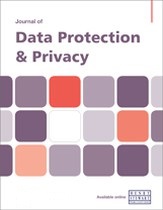AI-driven surveillance in India: Reconciling privacy, national security and legal oversight
Abstract
Artificial intelligence (AI) is having a significant impact on how the surveillance apparatus in India operates. Along with the numerous possibilities, the indoctrination of AI in surveillance mechanisms poses serious privacy concerns. The conflict between state surveillance and the fundamental right of privacy is apparent even at the conceptual level. On the one hand, the rise of advanced surveillance mechanisms has been an abetting factor in this conflict, while on the other hand, many theorists have been at work to find a harmonisation between them. Throughout Indian history, surveillance apparatus has helped thwart threats to national security and maintain the nation’s integrity. The apparent disadvantage of surveillance can be its intrusion into citizens’ right to privacy, which poses several legal challenges. This paper explores how incorporating AI in surveillance mechanisms enhances India’s surveillance apparatus and influences the conflict between national security and privacy rights. The paper examines how revolutionary AI technologies such as predictive policing, facial recognition (FRT) and AI-enhanced monitoring systems aggravate the apparent conflict between national security interests and the fundamental right to privacy, as adjudged in the Puttaswamy judgment. The paper critically analyses the existing legal architecture, which consists of the Telecommunications Act and the IT Act, and highlights its shortcomings. Further, the paper traverses how legal frameworks of other jurisdictions such as the European Union (EU) AI Act, the Canadian AI and Data Act (AIDA) and the US regulatory guidelines could guide India in determining a well-rounded regulatory approach. Additionally, the paper proposes adopting a context-based or risk-based approach to AI regulation and the practical challenges therewith in an attempt to harmonise the state security imperative with citizens’ privacy rights without obstructing technological advancement. The comparative analysis of different regulatory guidelines and legislations and the potential regulations would provide practical insights for the legislature, law enforcement and other stakeholders. The paper ultimately argues that there is an exigence for a comprehensive regulatory framework to conciliate national security and privacy rights in the AI-powered digital landscape.
The full article is available to subscribers to the journal.
Author's Biography
Manu Mariyan Abraham is a Research Scholar at the School of Law, CHRIST (Deemed to be University), Bangalore, India. He completed his Master’s degree in law from CHRIST (Deemed to be University). Manu’s research focuses on laws governing the surveillance framework in India and the implications on right to privacy.
Shampa Dev Dr Shampa Dev is a Professor of Law at the School of Law, CHRIST (Deemed to be University), Bangalore, India. Shampa regularly teaches legal research methodology and jurisprudence, and has taught courses on constitutional law, election laws, family law, human rights, interpretation of statutes and the right to information. Her scholarship focuses on exploring rights jurisprudence in the domains of privacy, human rights, gender justice, environmental rights and disability rights.
